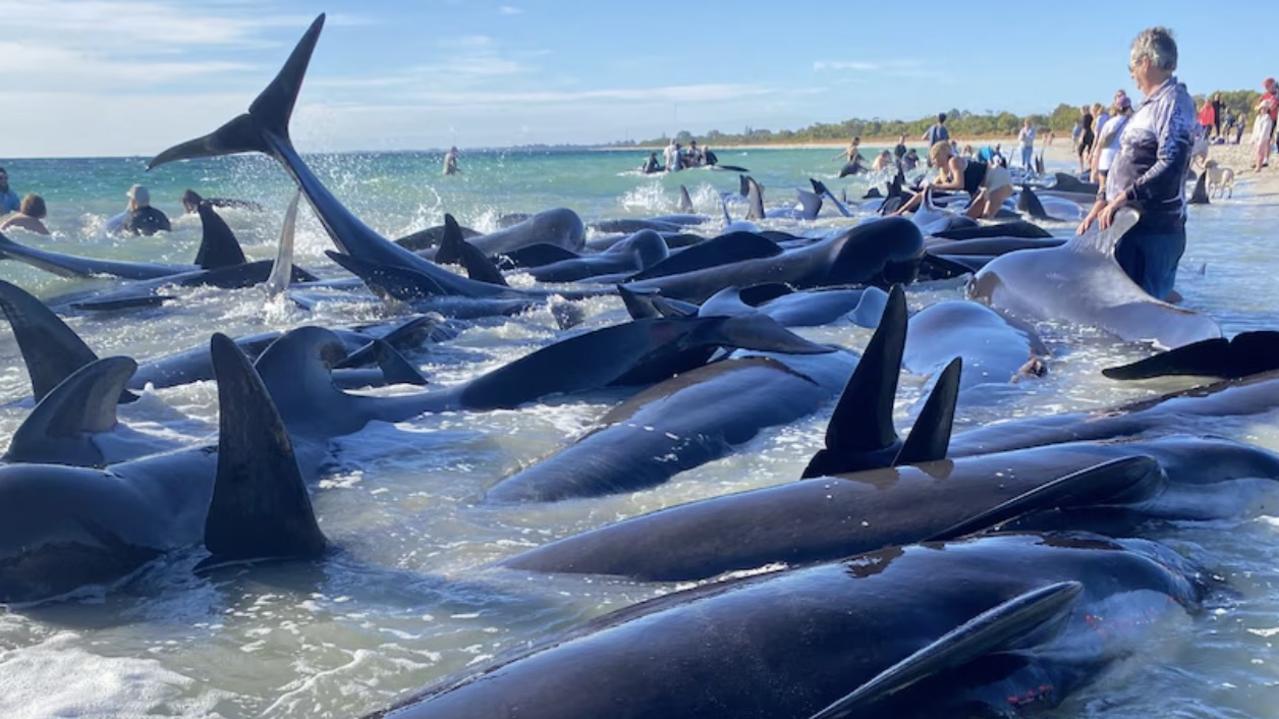By Teele Rebane, Heather Chen and Manveena Suri
A dramatic operation to save the lives of more than 100 pilot whales ended in partial success on Thursday after wildlife officials managed to return most of the stranded animals to sea.
Rescue teams rushed to the beach located in the coastal town of Dunsborough, south of Perth, to tend to the whales.
It was an “overwhelming sight,” said Ian Wiese, Chair of Geographe Marine Research group, who was involved in the rescue operation on Thursday.
“You can see how closely packed (together) the whales were. I’ve managed (whale strandings) before but nothing ever of this size,” Wiese told CNN.
In total, 130 whales were returned to sea after a total of 160 were beached, according to the department of Parks and Wildlife Service Western Australia (DPAW). However at least 28 whales died.
Whale pods can beach themselves again even after being saved. As a result spotter planes in the area are continuing to watch and see if the released animals will return to shore. “So far, they have remained off the beach,” Weise said.
“My initial reaction seeing hundreds of whales all bunched (together) on the beach was just completely and utterly overwhelming. It was really, really chaotic,” he added.
“However, the final result was good news – as often with these events, it is only possible to save a few.”
The mystery behind whale strandings
Animal behaviorists and marine scientists have previously said that survival rates for beached whales is low, and the animals “can only survive for around six hours on land before they start to deteriorate.”
Groups of locals and wildlife officials worked together to hold the animals upright and “keep their blowholes clear,” Wiese said.
Also present were wildlife officials from the DPAW, as well as experienced veterinarians, trying to save as many whales as possible.
Like other whale species, pilot whales are highly sociable often looking out for each other especially if a member of the pod falls sick or is injured.
“The remaining whales will play this amazing supportive role,” Wiese said.
“When they’re out at sea, in deep waters, there’s nothing that can disturb that care process but if an injured whale ends up near shore, there will be a lot of hazards (for the pod) that come along and will get in the way… echolocation doesn’t work properly and before you know it, you’ve got a whole family (stranded).”
He pointed to a “newly-born calf” he had spotted among the stranded group.
“It was this little baby that still had creases down its body and its umbilical attached,” Wiese said. “That may or may not have been a factor of why these animals got to the point of stranding.”
Last year more than 50 pilot whales died in a mass stranding event in Scotland. The same month wildlife officials in Western Australia said they had to make a heart-breaking decision to euthanize dozens of stranded long-finned pilot whales after a frantic rescue effort to refloat them failed to yield results. – CNN

